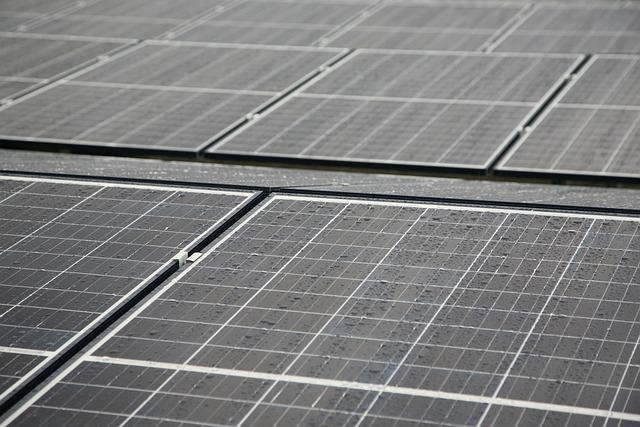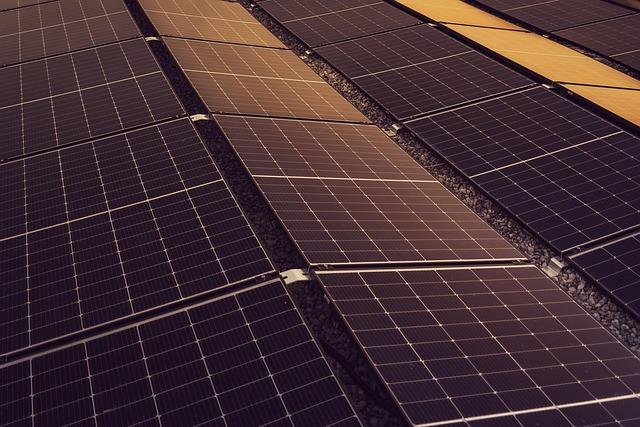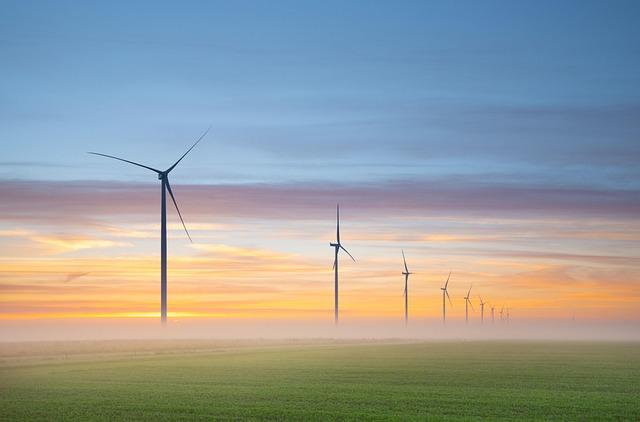- Introduction
- Financial Commitment Behind the $636 Billion Pledge
- Targeted Investments in Africa’s Clean Energy Sector
- Strategic Partnerships and Bilateral Agreements
- Challenges and Opportunities Ahead
- Conclusion
- FAQs
- References
Introduction
The European Union has pledged an estimated $636 billion to support clean energy development across Africa—a bold initiative that promises to reshape the continent’s energy future. This monumental commitment marks a significant milestone in global efforts to combat climate change and ensure universal access to sustainable energy.
In this blog post, we will explore the financial scope of the EU’s historic investment, examine the key areas targeted for development, and unpack the partnerships that are driving change. We'll also analyze the opportunities and challenges facing both continents and feature expert insights into what this pledge means for Africa’s economic and environmental future.
As we transition into a low-carbon world, understanding the interconnected goals between Europe and Africa has never been more important. Read on to discover the impact of this transformative plan.
Financial Commitment Behind the $636 Billion Pledge

(Image: Pixabay/@Klas_lu)
The EU's $636 billion pledge is part of its Global Gateway initiative, aimed at competing with China’s Belt and Road infrastructure model and fortifying Europe's geopolitical ties with developing nations. About one-third of these funds will be specifically earmarked to support green energy solutions in Africa, positioning the continent as a pivotal partner in global decarbonization efforts.
This funding will come from a combination of public grants, state-guaranteed loans, private capital mobilization, and European development banks. Countries such as Germany, France, and Italy have committed substantial contributions through bilateral financing agreements. These figures underscore the EU’s long-term interest in sustainable growth beyond its borders.
Such large-scale funding is not just about transferring money—it also includes technical support, regulatory reform assistance, and the creation of conducive business environments for European companies to thrive while helping Africa's energy infrastructure evolve sustainably.
Targeted Investments in Africa’s Clean Energy Sector

(Image: Pixabay/@Michael_Pointner)
Africa holds enormous potential for renewable energy, with vast solar fields, powerful wind corridors, and untapped hydro resources. The EU initiative will prioritize solar power installations in countries like Egypt, Senegal, and Namibia, where sun exposure is abundant and grid expansion is feasible. These regions could become future exporters of green hydrogen—one of the clean fuels strongly backed by the EU.
Wind farms along the coasts of Morocco and Kenya are also on the agenda, offering high-capacity generation zones with the infrastructure to potentially connect to European markets via subsea cables. Hydropower in Central Africa and geothermal projects in East Africa will receive attention as well, ensuring regional diversification in renewable investments.
Maintenance of local ownership and sustainability is key. The EU's approach calls for training programs, technology transfer, and procurement policies that benefit African SMEs (small and medium-sized enterprises). By embedding education and workforce development into these investments, the focus is not only on generating power but also on empowering communities.
Strategic Partnerships and Bilateral Agreements

(Image: Pixabay/@Daniele_K)
The clean energy investment plan is not a one-sided affair; it hinges on cooperation. Through forums such as the EU-African Union partnership and COP summits, joint ventures and policy dialogues are being created to align goals and monitor progress. The African Union Commission is working alongside EU institutions to coordinate multi-country clean energy corridors and shared grid systems.
Notable among the new batch of partnerships is the EU’s agreement with South Africa to facilitate its Just Energy Transition project—providing aid and guidance as the country shifts away from coal dependence. Other deals include the Mozambique-EU Gas Agreement, which includes sustainability clauses, and collaborative R&D between European and African universities focusing on solar battery storage solutions.
Private-sector collaborations, such as those with Siemens, TotalEnergies, and Enel, are paving the way for innovative financing models including pay-as-you-go solar, ahead-of-meter microgrids, and community wind cooperatives. These partnerships aim to catalyze job creation and scale local entrepreneurship within the green economy.
Challenges and Opportunities Ahead

(Image: Pixabay/@RyanMcGuire)
Despite the promise of transformation, several barriers could impede swift implementation. Political instability, regulatory inconsistencies, and underdeveloped physical infrastructure in certain African countries require coordinated policy harmonization and risk mitigation frameworks. Moreover, integrating renewables into fragile or non-existent national grids remains a major concern.
Still, the opportunities are vast. Africa currently accounts for just 3% of the world's energy emissions, giving it a unique chance to achieve growth without fossil fuel dependency. Moreover, the youth demographic—expected to double by 2050—offers a burgeoning workforce ready to take up jobs in the green sector.
Resilience design, climate adaptation technologies, and smart grid innovations are some emerging fields ripe for investment. If implemented effectively, the EU’s funding could transform Africa into not only a consumer but also a producer of renewable energy technologies, feeding goods and services back into global supply chains.
Conclusion
The European Union’s historic $636 billion pledge to promote clean energy in Africa holds the potential to redefine North-South relations, tackle climate change, and support sustainable economic growth on both continents. While the path forward features inevitable complexities, the benefits of cooperative clean energy development are no longer optional—they're essential.
This initiative stands as a beacon of international solidarity, technological cooperation, and visionary policymaking, with real chances to uplift millions of Africans while aiding the global climate agenda. Through accountable action, robust partnerships, and shared innovation, this immense investment can fuel a clean, inclusive future for all.
FAQs
What is the EU Global Gateway initiative?
The Global Gateway is the EU’s strategy to boost smart, clean, and secure links in digital, energy, and transport sectors globally. It aims to invest €300 billion between 2021 and 2027 in sustainable infrastructure worldwide, with a major focus on Africa.
How will African countries benefit from the clean energy investments?
Countries stand to gain from sustainable electricity access, economic diversification, job creation, and better climate resilience. Projects include solar, wind, geothermal, and hydropower infrastructure developments, alongside training and capacity-building efforts.
Are there related employment opportunities for African citizens?
Yes. Many of the bilateral and multilateral programs include vocational training, STEM education initiatives, and support for young entrepreneurs. This ensures local populations are integral in operating and maintaining clean energy systems.
Which countries are leading in the EU-Africa energy partnership?
Countries such as Germany, France, Belgium, and Italy are at the forefront of committing resources and forming strategic partnerships. On the African side, South Africa, Kenya, Namibia, Senegal, and Morocco are initial investment priority hubs.
How will this initiative affect Europe?
Europe benefits through the diversification of its energy sources and improved geopolitical alliances. It also supports Europe's climate commitments by investing in credible carbon offset measures and promoting the use of green hydrogen imported from Africa.

